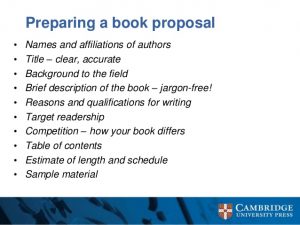After our recent Professional Development sessions, we thought it would be great to follow up with some additional advice on writing a book proposal. This interview with University of Illinois Press’ Dawn Durante on her best practices for book proposals and the scholarly publishing process, is another excellent resource.

As you know, Ilene Kalish (NYU Press) and Kimbery Guinta (Rutgers UP) shared some useful advice that you can use, and former FFPP Fellow Keridian Chez generously shared her successful book proposal in this year’s Tool Kit.
We learned that its crucial to remember that your book project is different from your dissertation; that its important to showcase your clear articulation of project’s argument as it organizes the chapters in your book. Your proposal should also include a discussion of your anticipated audience, recent and groundbreaking books that it engages, a table of contents (sometimes with BRIEF descriptions of each chapter’s argument), your estimation of the book’s length (80-100K words), and sample chapters.
Kim Guinta from Rutgers reminded us that sometimes a proposal gets rejected because the project is not a good fit for a particular press. She advised that if you are unsure which presses might be a good fit for your manuscript, you should peruse the titles on your book shelf–whose is publishing the books you engage in your research?
One obvious and important point the editors reminded us is that you should take care to personalize your proposal and your query: Be sure to include specifics from the press you correspond with. If you are writing NYU Press, for instance, include references to titles published by NYU. Explain for instance, why is NYU a good fit for your project. And, if you chose to send multiple queries at the same time, it is ethical to disclose this detail in all of your correspondences.

